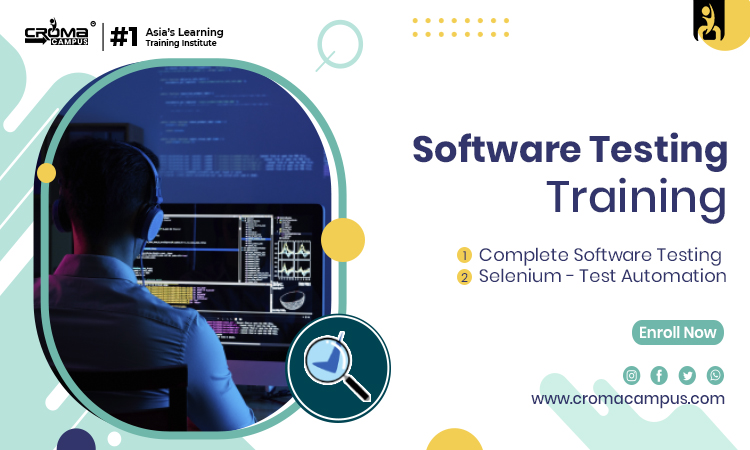Phases Of Software Testing Life Cycle

Introduction:
Testing is an important phase of a product development lifecycle. Clearly, testing is done to identify potential problems before the user interaction. Whether it is a small application or a large access application that people access each day, every application needs testing. Whatever the case, a professional, tests the software before its launch. Further, to be a professional in this field you can undergo Software Testing Training in Noida to learn its works. Basically, a Software tester evaluates the software to ensure performance efficiency and reliability.
The phases of the Software Testing Lifecycle:
- Requirement Analysis: It is the first step towards Software Testing Life Cycle (STLC). In this step, the prescribed quality assurance team looks after the requirements about what is to be tested. Moving ahead if anything seems to miss out or is not understandable then the quality assurance team meets with the stakeholders to get an understanding of the requirement.
- Test Planning: This is the most systematic phase of the software testing life cycle. This is the step that defines the test plan. Further in this phase manager of the testing team, calculates requiring efforts and costs for the testing work.
- Test Case Development: This phase starts after the test planning phase is on the line to completion. Basically, here the testing team prepares the necessary test data for the testing. After preparing the test cases the quality assurance team reviews them.
- Test Environment Setup: It is the most important part of the lifecycle. Certainly, the test environment phase decides the condition on which software has to undergo the testing process.
- Test Execution: This phase starts with executing test cases. While testers execute all the test cases with as many as possible within the allotted time
- Test Closure: Towards the end, the testing team outlines a test closure report. That summarizes and communicates its findings with the rest of the team. Basically, this report includes summaries of the testing work and results.
Careers in Software Testing:
A good Software Testing Engineer is unafraid to work on the skills to maximize their career prospects. With Expertise and experience, a good Software Testing Engineer evolves as a Software Test Lead, Test Manager, Software Quality Assurance Manager, and then Project Manager. However, some people believe that the role of the Software Testing Engineer is less challenging as compared to that of a Developer. Though it is more challenging to keep up with the advancing industry trends. Moreover, it is more important to understand the various data breach variants. Basically, this is done for the smooth execution of the testing process.
Looking at the growing need for a Software Tester, you can definitely think of a career in this. As explained above, this career has a lot of potential. You can start from the initials and move towards the seniormost designation. After a brief training module, you need to be well-prepared for Interview rounds. To practice in a better way, you can look after Software Testing Interview Questions to prepare yourself for any situation coming ahead. Some Interview questions can be as such:
- What is Software testing?
- Elaborate on different types of Software Testing
- How will you identify bugs?
- Explain the Software testing lifecycle
- What is end-to-end testing?
- Throw light on API
- What is a test environment
- What is a test plan?
- Define some testing tools
- Steps to consider while testing
- What is STLC?
Conclusion:
In the last few years, the profile of software testers has gone through a lot of changes. Indeed, careers in Software Testing have become topped for application/product implementations. With this business has realized the virtue of structured testing of applications before user interaction. However, testing has created different levels and types that have grown the value of Careers in software testing. Besides, being a general test case executor, you can opt for several career options evolving in the testing community. Moreover, a piece of good knowledge in the given area of the application adds intrinsic value to the testing professionals.
